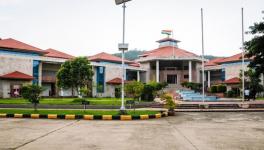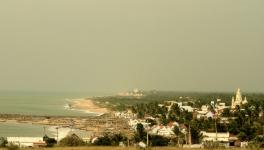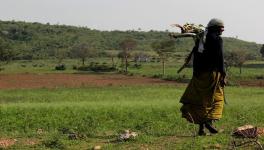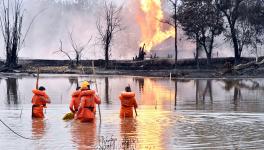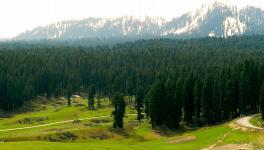Manipur HC Reaffirms Stay on Development Projects Around Loktak Lake
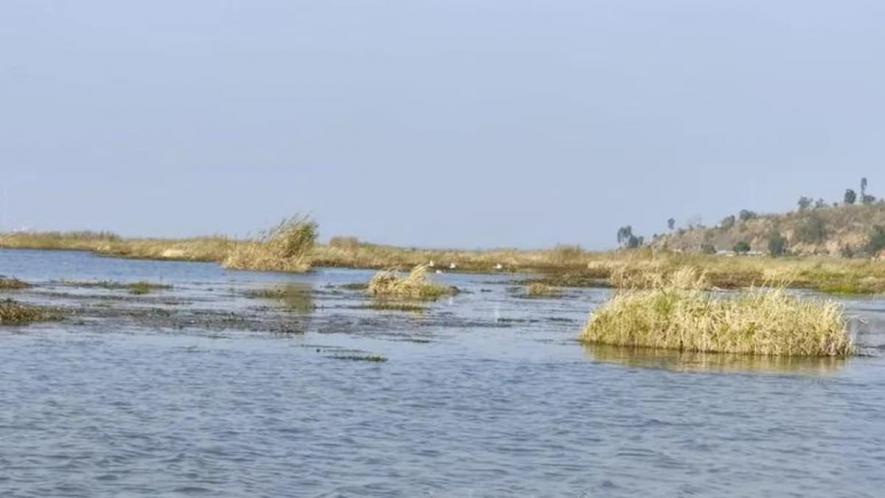
No development work can proceed in the Loktak Wetland Complex region without the permission of the court, reaffirmed the Manipur High Court on February 25, 2022. A Special Bench passed this order after noting that the Loktak Development Authority’s (LDA) and Wetlands International South Asia’s common ‘Integrated Management Plan for Wise Use of Loktak Lake 2020-25’ was lacking.
The court instructed, “Pending further orders, authorities shall abide by the earlier order dated July 17, 2019 passed by this Court and ensure that no development/construction works are initiated in and around the Loktak Lake without the leave of this Court.”
The order was heartily welcomed by the two petitioners from the All Loktak Lake Areas Fishers Union - Manipur (ALLAFUM) as well as Imphal’s Indigenous Perspectives and Bengaluru’s Environment Support Group. Petitioners Oinom Akashini Devi and Khoirom Kiranbala applied for a delay condonation from the court, worried that the LDA and state tourism department will proceed with Notice Inviting Tender (NIT) promoting projects sans public involvement as required per law.
A prior and informed consultation with invested parties regarding determination of activities permitted on the wetland is required under Rule 7 of the Wetland Rules. Petitioners also brought to the attention of the Court that the Ministry of Environment, Forests and Climate Change (MoEFCC) is on record stating that the Brief Document for Loktak Lake was not furnished.
“By their very nature, the projects would sound the death knell for the livelihoods of hundreds of thousands of fisher, pastoral, artisanal and farming families depending directly and indirectly on this immensely productive wetland. Besides, such projects are against the concept of wise use demanded for the wetland per the Ramsar Convention and would irreversibly destroy the Loktak Wetland region,” said a joint letter written by the three environmental organisations.
Loktak lake, a Ramsar site
The Ramsar Convention is an international treaty for the conservation and sustainable use of wetlands. Loktak lake is one such Ramsar site, located on the far eastern corner of India bordering Myanmar. This lake is the largest natural freshwater lake in India and is formed with the meandering drainage of Manipur, Imphal and Nambul rivers. Over 1,500 fisherfolk live in houses built here on floating phumdis (heterogeneous mass of vegetation, soil and organic matter at various stages of decomposition that can be 40 sq.km large), sustaining their livelihoods with wooden canoes (no polluting motorboats are allowed by the community) and traditional fishing. World’s only floating protected area, Keibul Lamjao National Park is located on one such phumdi. It is a unique habitat hosting the critically endangered Sangai (Eld’s deer), Manipur’s State animal, and several other rare species.
Missing Brief document and other issues
The Court emphasised the need to comply with Rule 7 of the Wetland (Conservation and Management) Rules, 2017 that requires identification of several key aspects of a wetland. For the permission and regulation of activities in the wetland, all information such as its boundaries, the pre-existing rights and privileges associated must be compiled in a “Brief Document”. Based on this, authorities make a draft notification and invite public comments to create an “integrated management plan”.
The High Court stressed compliance with this provision; the only mechanism in the Rules that allows for public involvement in decision-making relating to wetland governance. However, the Court noted that this “basic requirement” was not satisfied in the Integrated Management Plan for Loktak lake.
According to the environmental rights group, allowing the tender process for any construction project on the lake attacks various fundamental rights associated with these extraordinary commons. The review petition argued that the Court would be erroneous in considering the Integrated Management Plan as a “basic requirement” without the Brief Document.
The court’s October 12 order also noted that the state government misled the Court regarding the status of funding. Solicitor General of India Tushar Mehta appearing for the Manipur government said that funds sanctioned for both the inland waterways and eco-tourism projects were likely to lapse if the NIT process was not allowed.
However, when review petitioners wrote to the Asian Development Bank, which supposedly sanctioned funds for the eco-tourism project, they learnt no such funds were sanctioned even as late as February 2021. The NIT for the project had been issued in November 2020, close on the heels of obtaining the permission of the Court.
In the joint letter, organisations welcomed the Court decision that gave “hope to local communities that the voice of reason”.
“This is especially in the context of the elections underway for the Manipur State Assembly, where most major parties have proposed projects that will ensure the rapid deterioration and eventual death of the biologically diverse, highly productive, amazingly beautiful, Loktak, a habitat where human settlement co-dwells with diverse wildlife,” said the letter.
Groups also urged the Wetlands International to direct its South Asia office to withdraw the report and help create space essential to initiate the process for formulation of the Brief Document. This will be in keeping with the principles of the Ramsar Convention, Convention on Biological Diversity, Rio Declaration and Agenda 21, amongst others.
Get the latest reports & analysis with people's perspective on Protests, movements & deep analytical videos, discussions of the current affairs in your Telegram app. Subscribe to NewsClick's Telegram channel & get Real-Time updates on stories, as they get published on our website.










